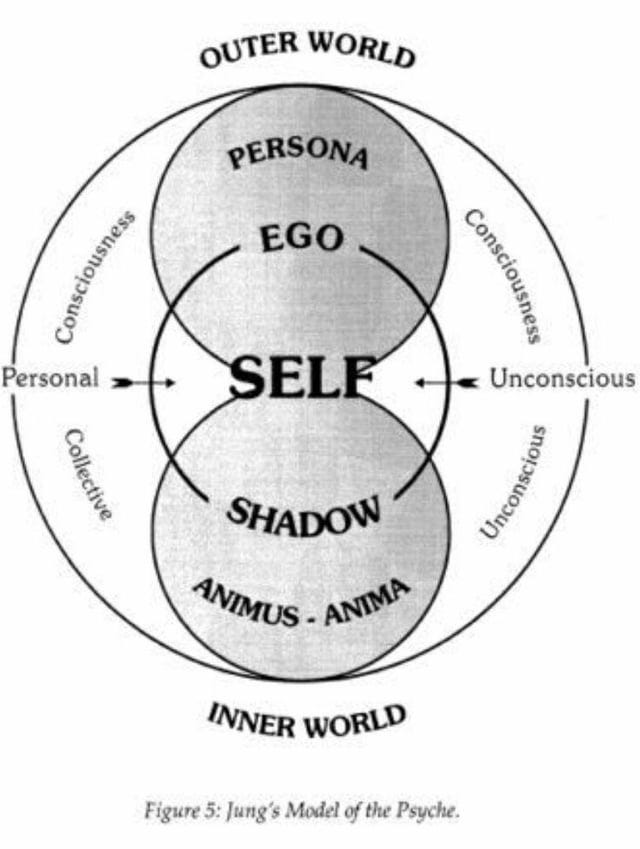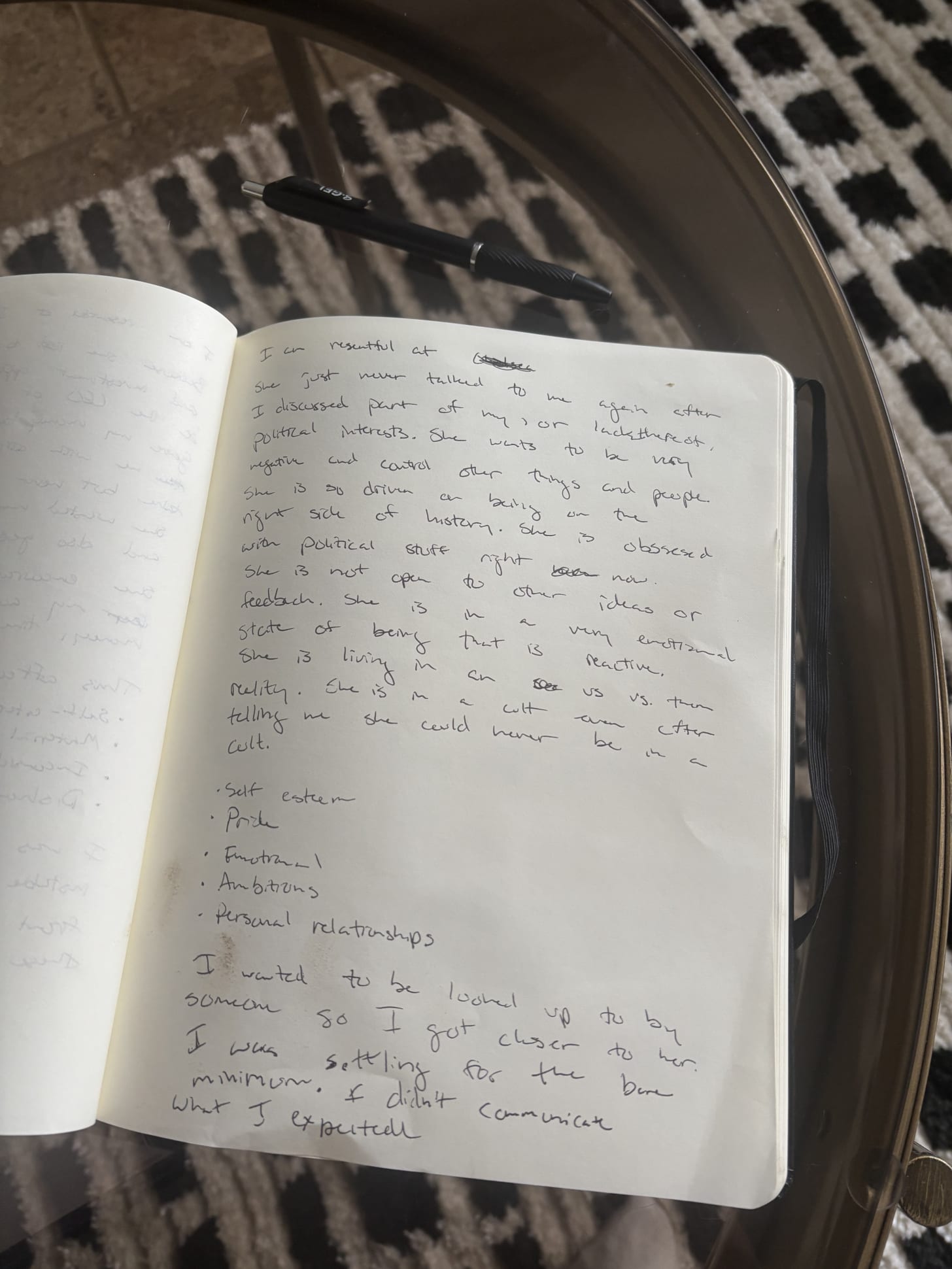How are you Limiting Yourself?
We all have subconscious blocks that create blind spots, holding us back from making powerful choices that shape our future success. These blocks often stem from repetitive stories we tell ourselves—stories about limitations we believe we have and the negative emotions we attach to them.
This pattern shows up in our jobs too. One of my favorite mottos, which I remind myself of daily, is: How you do one thing is how you do everything. Our work lives and personal lives are deeply interconnected, reflecting our mindset. For example, if I believe I shouldn’t ask for “too much” in a relationship, I start imposing invisible limits on myself. The more I buy into these self-limiting beliefs, the more they seep into other areas of my life. Before long, I might catch myself thinking, “I can only make up to X dollars a month in my business because asking for more would be too much.”
What is Your Shadow?
Carl Jung referred to our “dark side” as the Shadow. He defined it as “the hidden, repressed part of a person's personality that contains things they don't like to show. It's made up of repressed ideas, weaknesses, desires, instincts, and shortcomings.”
When we decide to confront our Shadow, it’s called Shadow Work. The purpose is to integrate the Shadow with our persona, helping us manage the impulses we typically ignore. Jung believed that facing our shadows could profoundly transform both ourselves and society. Personally, I believe it can also deeply impact our careers and earning potential.
Looking at the above graphic, the “self” represents you and your personality—a constant push and pull between how your Shadow and Ego interpret and respond to the world. This is a simplified overview of a complex dynamic.
How the Dark Side Affects our Careers
We all face trauma, hardships, and hurdles in our careers. If you think you haven’t, you might still be in “Corporate Pick Me” mode—and that’s okay; stick around, and you might start to see things differently! For those of us aware of the corporate exploitation and coercion so prevalent today, we often end up carrying extra baggage we don’t need. Baggage we may unknowingly believe, run from, or waste time trying to disprove.
One example for me was the negative feedback that impacted my first raise. Right out of college, I took a solutions consultant role—whatever that means. I was tackling the biggest tech projects for major clients (some big names in food and beverage), constantly overwhelmed with work that couldn’t be completed within a standard workday or week. Despite asking repeatedly for support, the answer was always, “We’re actively working on a solution.” Six months went by with no solution in sight.
After my first year, no one received raises due to COVID, and we even took salary cuts to “weather the storm.” Two years in, the feedback was that I was “disorganized.” We tried multiple project tracking methods, yet with so many people editing the trackers, staying on top of my work felt impossible. So, instead of the 12% raise, I received 10%—not terrible, right? But this was over two years, and if I was truly “disorganized,” why did they trust me with such high-stakes projects? It felt more like an excuse to avoid giving me the maximum budget, rather than genuine feedback I could use.
That experience left me carrying guilt and shame, convincing myself that my lack of organization would hold me back from the career and financial success I wanted. This limiting belief followed me into my next role—a lazy girl job—and even into content creation, affecting how big I allowed myself to dream with this brand. The belief that “I’m too disorganized” became a self-imposed limitation from my Shadow, weighing down my ambitions and keeping my goals in a “safer” range that my Shadow felt it could handle.
Anti Work Sponsors
LazyWork
Keep your work laptop active and simulate working without getting caught by pesky time trackers.
Ra Optics
Shop my yellow lens glasses for THE best blue light blocking and mood boosting and the cutest look. Use code: ANTIWORK for 10% off
(I am gifted dozens of glasses all the time these are hands down my favorite!!!)
Notion
Notion is the free, ultimate all-in-one productivity tool that helps you effortlessly organize your life, work, and goals in one place!
You.com
You.com > ChatGPT
Free plan: Get 4 different AI modes (Research, Genius, Test, GPT-4)
Paid plan: pay one subscription and receive premium subscripts to Chat GPT-4o, Claude, and much more!
3 Ways I Tackle My Dark Side
Talking my Shadow
The first step is to stop believing everything your Shadow tells you. If letting go completely feels too hard, start by reminding yourself that you aren’t defined by the things you feel guilty about. Here’s how I approach it—with a twist!
When my Shadow tells me, “You’re disorganized, and you always will be,” it’s tempting to believe it, especially when I’m feeling overwhelmed and on the verge of self-sabotage. Instead of fighting it, I embrace it. I tell myself that even my flaws are gifts.
I sometimes use my video content as a way to face my Shadow publicly. Here’s an example of me recently embracing my “disorganized” side on Instagram:
Taking inventory of my Shadow
In my latest Work Whistleblowing, I shared an old work trauma—something deeply personal in a two-part, exclusive tell-all on Substack. Unlike my usual whistleblowing, where I expose an employer or share insider stories from readers, this time, I told my own story. It’s a story I’ll never share publicly elsewhere out of respect for privacy, and I chose to tell it because it recently reached a close after two years of gaslighting, financial strain, and overwhelming guilt and shame.
If you missed it, you can read the posts here:
After writing about these past experiences, I still felt unfinished. The usual sense of closure wasn’t there. I noticed I was still operating from these old stories, shaped by past incidents. After some reflection, I realized it was because another issue—a disagreement with a friend—was weighing on me.
I won’t go into detail, but the disagreement was politically charged. I wanted to agree to disagree, avoiding politics to preserve the friendship, but it created tension instead. Our bond felt tested over something I thought we could navigate through open communication.
So, I turned to my trusty process of taking inventory, a tool I picked up from Alcoholics Anonymous. If you’ve ever done a 12-Step program, this may sound familiar. And if not, you don’t need an addiction to benefit from it! (Although, let’s be real—if you read this Substack, you might have a touch of workaholism. No judgment! Overworking is ingrained in our culture from a young age.)
Here’s how to take inventory:
Find a safe space, emotionally and physically.
Grab a blank sheet of paper and write down the name of someone you feel resentment toward.
Write a brief paragraph about what they did to upset you.
List all the areas this incident affected: resentments, anger, fear, pride, self-will, self-pity, guilt, shame, relationships, etc.
Reflect on your part in this. (This is where the real Shadow Work comes in—it gets easier with practice!)
You can see my own inventory work from the other morning below:
Journaling about my Shadow
One of the most accessible methods I've found is using a structured guide. My friend, Keila Shaheen, authored the bestselling Shadow Work Journal, which has been instrumental in my personal growth. We share the same literary agent and connected a few years ago when she interviewed me for TikTok Small Business.
This journal has significantly enhanced my leadership approach with all of you. I often incorporate its frameworks into my public speaking and webinars to help us collectively address limiting beliefs and work-related traumas.
I'm a huge fan of Keila's work (she was the inspiration of this post). If you're interested in delving deeper into Shadow Work, I highly recommend checking out her new Substack.
There is no “Perfect” Shadow Work
Embracing and working with our Shadow isn’t always easy, and it’s important to remember there’s no such thing as “perfect” Shadow Work. This isn’t something you do once and never revisit—it’s a continuous journey, like peeling back layers of an onion. The focus of Shadow Work can shift over time, and that’s okay. At first, I thought my past work experiences were my main source of unease. But after addressing them on Substack and still feeling unsettled, I realized I had some unfinished business with recent friend drama that needed attention. Each step helps us release the baggage that holds us back, creating space for greater success, fulfillment, and authenticity in both our personal lives and careers. I’m grateful to have you on this journey with me, and I hope these insights empower you to explore your own Shadow Work.






